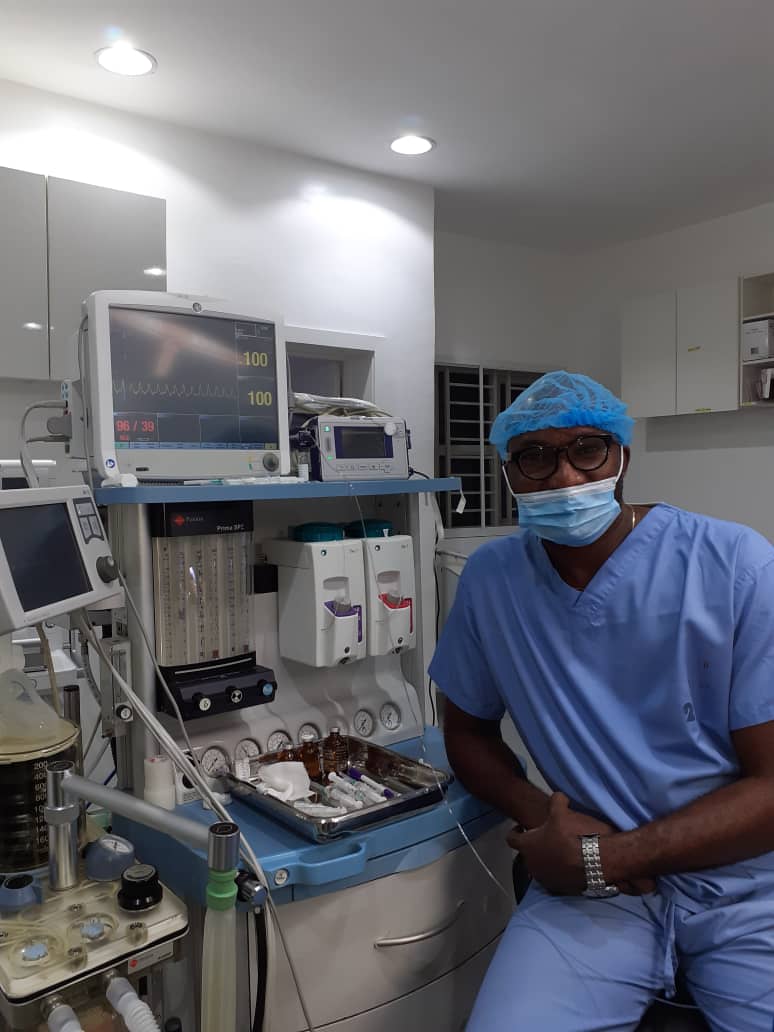
General Anaesthesia- Allay your fears
You might have heard cases of people waking up in the middle of a major surgery or people passing on from anaesthesia. As a surgeon, I get a lot of request from patients who are afraid to go under the General anaesthesia because of these incidences. They request to have their procedures done under Local Anaesthesia which leaves them widely awake but with partially deadened part of the body to be operated upon.
For patients who asks for this option of anaesthetic, I tell them that we do not employ that form of anaesthesia for certain procedures because of the following reasons: If
- The operation will last a couple of hours
- Muscles need to be lifted and tightened like in the case of Tummy Tuck
- Large areas are being treated
- Breathing may be affected
Having operated on thousands of patients and empathizing with their concerns, it is only fair that I educate you all briefly on what General Anaesthesia is and its functions.
What exactly is General Anaesthesia?
Some weeks back, I posted a short video of our Anaesthetist, Dr. Olurankinse, fondly called Dr. Rankins, talking about the functions of Anaesthesia, during surgical operations.
General Anaesthesia known as GA is a combination of medication that puts patients to sleep before a surgery or other medical procedure.
General Anaesthesia is administered or given as a liquid that is injected into your veins through a cannula (a thin plastic tube that feeds into a vein usually on the back of your hand) or through a gas administered through a mask after which you will start feeling light-headed before becoming unconscious within a minute or thereabout.
With General Anaesthesia, you are not only put to sleep, your brain will also be unable to respond to any pain or reflexes.
Now, let me run you through the Step by step process of prepping for surgery and the administration of Anaesthesia at our facility.
Before Surgery
Dr Rankins, our Anaesthetist checks on you to ask basic questions pertaining to your health history and tries to allay your fears of the procedure. I remember him telling me of a case of a patient whose blood pressure shot up as soon as she stepped into the clinic. After speaking to her, chatting up and joking with her, her BP became normalised. It is important that a patient is in a good state of mind before walking into the operating theatre.
On the theatre table, the anaesthetic technician hooks the monitoring devices on you while the anaesthetist reassures you, and sometimes jokes around before administering the Anaesthetic drugs that will eventually put you to sleep.
One of the drugs administered to you will be Analgesics, which will be injected into your veins so that you feel little or no pain during and after surgery.
During the Procedure
Dr. Rankins, the Anaesthetist will stay with you throughout the procedure. He will make sure you continue to receive the anaesthetics that keeps you in a controlled state of unconsciousness while also using all your medical history and expertise to keep you safe and well while the surgery lasts.
He monitors your body’s vital functions such as oxygen circulation in the blood, your heart rate, blood pressure while also managing your breathing. He balances possible blood loss with adequate fluid requirements, maintains normal body temperature throughout surgery and balances other detailed medical dynamics beyond the scope of this diary.
After Surgery
After surgery is over, drugs are administered to reverse the effects of the anaesthetics just as the anaesthetist rouses you from your sleeping state. He would ascertain you regain your pre-surgical body functions.
Recovery
General Anaesthetics can affect your memory, concentration and reflexes for a day or two which is absolutely normal. So it’s important for a responsible adult to stay with you for at least 24 hours after your operation. You’ll also be advised to avoid driving, drinking alcohol.
There are certain side effects associated with being under general anaesthesia. All these Dr. Rankins would have explained to you right before your surgery. The possible side effects include:
- Memory loss and confusion- this is usually temporary but can last a little longer
- Nausea and vomiting
- Feverish feeling
- Difficulty in passing urine
- Sore throat- this is because a tube might have been inserted down your throat to help you breathe. This can cause a sore throat.
- Bruises to the mouth. You may have small cuts to your lips and tongue on the tube.
- Dizziness
You should try to stop smoking or drinking alcohol in the weeks before surgery as doing so will reduce your risk of developing complications.
General anaesthesia is generally safe, even for the most sensitive patients. While side effects from Anaesthesia do exist, they are generally mild and temporary. Experiencing serious side effects is most often linked to the patient’s general health which will be taken into consideration before your surgery.
With us at Grandville, you have absolutely nothing to fear. Be rest assured that you are in safe, trusted and experienced hands.
To book an appointment for consultation, reach us 08164548279, 08171530599.
Watch out for my next post!!!
Grandville Medical and Laser
Where health meets beauty
Leave a Comment
(2 Comments)
Very enlightening and educating. Thanks Dr.
Doctor thanks for sharing with us dis this important information, u are d best, keep it up doc
Recent Posts
Recent Comments
Archives
Categories